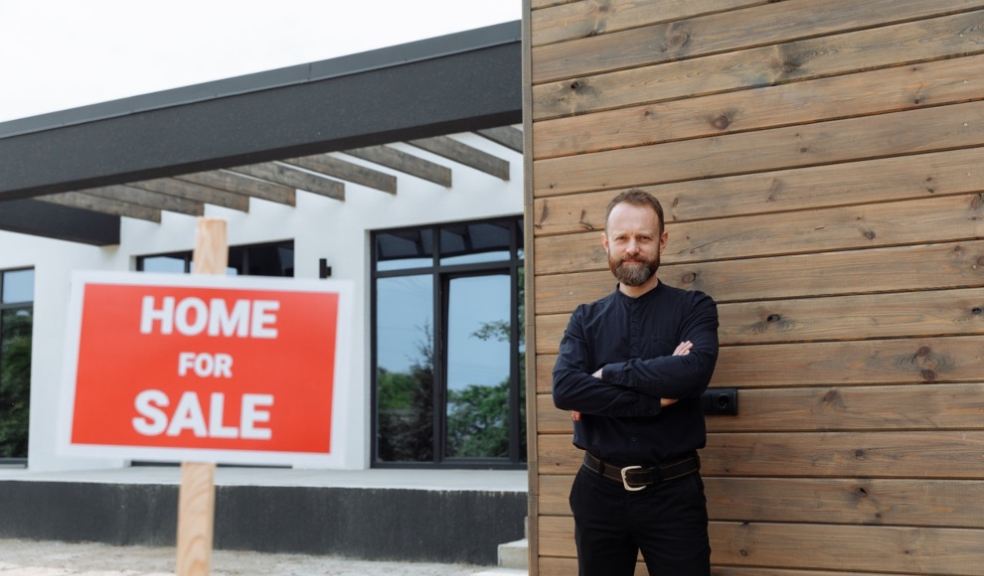
Most googled questions about buying a house
New research has revealed that thousands of British people are confused about the house-buying process.
The study, which was conducted by property experts Global House Prices, was conducted by analysing google data to discover the most-asked questions about buying a house.
It found that the phrase “How to buy a house” is the most searched-for keyword phrase, with nearly 3,000 people googling it in an average month.
The second most-googled question about buying a house is “How long does it take to buy a house?”. This keyword phrase is googled around 2,000 times a month, on average, followed by “How much deposit do I need to buy a house?” which receives an average of 1,300 searches per month.
“How much are solicitors’ fees for buying a house?” and “Is now a good time to buy a house?” come fourth and fifth, with 1,000 searches each.
People are equally confused about the cost of buying a house, what credit score you need to buy a house, and who is responsible for organising a house survey, with questions on these topics asked around 720 times a month.
In ninth and tenth place are the questions “How to buy a council house” and “How to calculate buying someone out of a house UK”, each of which are asked almost 600 times in an average month.
What are the most googled questions about buying a house?
According to the research, the most-googled property questions are:
|
Rank |
Search term |
Average monthly searches |
|
1 |
How to buy a house |
2,900 |
|
2 |
How long does it take to buy a house? |
1,900 |
|
3 |
How much deposit do I need to buy a house? |
1,300 |
|
4 |
How much are solicitors’ fees for buying a house? |
1,000 |
|
5 |
Is now a good time to buy a house? |
1,000 |
|
6 |
How much does it cost to buy a house? |
720 |
|
7 |
What credit score is needed to buy a house? |
720 |
|
8 |
Who organises a survey when buying a house? |
720 |
|
9 |
How to buy a council house |
590 |
|
10 |
How to calculate buying someone out of a house UK |
590 |
In an effort to demystify the house-buying process, a spokesperson for Global House Prices has provided the answers to these questions:
1. How to buy a house
First, you need to consider how much you can reasonably afford and then find a house you want with an asking price in the right region. In this process, seeking guidance from experienced professionals is crucial. Consulting SE1 estate & letting agents can provide valuable insights into the housing market, helping you make informed decisions. You will also have to find out how much mortgage you can borrow from a mortgage lender, get a quote from a solicitor to find out how much the legal side will cost you and hire a removal company for when you finally have the keys to your property. The exchange of contracts between the buyer and seller is one of the final hurdles to cross before you are able to move into your new home.
2. How long does it take to buy a house?
The overall time it takes to buy a property depends on the type of house, the number of other people involved in the chain (if any) and how quickly the paperwork can be filed.
Buyers who aren’t involved in a chain can expect to complete the process within 15 weeks of an offer being made and then accepted. Buyers who are part of a chain, on the other hand, may have to wait up to six months before they find that their offer has been accepted.
3. How much deposit do I need to buy a house?
The size of the deposit you will need to save for your home will depend on the property value and the type of mortgage you are applying for. Usually, you will need to have a deposit of at least five per cent of the value of the property. The smaller the deposit, however, the higher the repayments and interest rates will be, which means it’s more beneficial in the long term to save a bigger deposit if you can.
4. How much are solicitors’ fees for buying a house?
As with anything, solicitors’ fees vary drastically, however, to give you an idea, a decent solicitor will have legal fees of somewhere between £600 and £2,000. This does depend on the cost of the property and the amount of legal work involved, though.
5. Is now a good time to buy a house?
Because winter and summer tend to be quieter months on the property market, buyers may be able to get their ideal house quicker during these times, when there’s less competition.
Most houses go on sale during the spring or autumn months, just before or after the dreary winter months. This is because houses and gardens tend to look more appealing in the spring sunshine with the blooms out in full force and many buyers look to settle down in their new house before the colder months set in.
6. How much does it cost to buy a house?
Again, the cost of buying a house can vary greatly. It depends on factors such as the value of the house and whether you’re entitled to first-time buyer discounts. However, to give you an idea, some of your typical expenses will include:
- Broker fees — A mortgage broker may charge a fee to introduce a buyer to mortgage lenders.
- Conveyancing fees — This is the price to hire a property lawyer to legally transfer ownership (£460.00 – £900).
- Electronic transfer fee — This is how much a lender will charge to transfer the mortgage money to a solicitor (£40-£50).
- Land registration fee — The price to have the property registered under the new owner’s name.
- Property taxes — In England and Northern Ireland, house buyers are charged a stamp duty land tax if they go above the threshold. Scotland uses a Land and Buildings Transaction Tax, and Wales uses a Land Transaction Tax.
- Property valuation fees — The price for a lender to evaluate the property (£500 and £1500).
- Removal costs — It is also wise to factor removal costs into a budget. This ensures a buyer can move their goods (especially essential items like white goods) to a new property. Typically this costs around £50-£60 per hour.
- Survey costs — The price a surveyor will charge to check the building for any problems, including structural damage (£500-£1500).
7. What credit score is needed to buy a house?
Your current credit score and credit history will significantly impact your chances of getting a mortgage, as it gives the mortgage lender a good idea as to how reliable of a borrower you are.
A credit report outlines details of things like credit card bills, loans, mortgages, overdrafts, bankruptcy filings and utility bills that you’ve had in the last six years and will give you a credit score between 0 and 999. The higher the score, the better.
If you have a low credit score due to things like late or missed payments, County Court Judgements (CCJs) or bankruptcy, you may find it more difficult to get a mortgage, however, a provider that specialises in bad credit mortgages may be able to help you.
You might also be able to increase your chances of getting a mortgage if you put down a larger deposit to offset your risk and improve your credit score by registering to vote, correcting any errors on your report and removing links to ex-partners or old flatmates with poor credit scores.
8. Who organises a survey when buying a house?
Once a buyer’s offer has been accepted, they will usually pay for an expert to perform a professional survey on the property to ensure that there are no defects or underlying issues.
Before you pay for a surveyor, you should ensure that they are accredited. There are a handful of surveyance accreditors, but the two main ones are the Royal Institution of Chartered Surveyors (RICS) and the Residential Property Surveyors Association (RPSA).
9. How to buy a council house
Most council tenants can buy their council house provided the council house is their only or main home, the property is self-contained, and the buyers are secure tenants (meaning they are allowed to live in a rented council house for the rest of their lives if they wish).
As long as you have been a council tenant for a minimum of three years, you can make an application to buy a council house. This can be done with anyone who is on the tenancy, and you can also buy with up to three family members, provided they have lived with you for the last 12 months. You can still do this even if they are not on the tenancy.
You may also be able to buy an ex-council house if it was sold to a different landlord while you were still living in it. This is called the ‘Preserved Right to Buy.’
10. How to calculate buying someone out of a house UK
If you want to buy someone out of your home, you will need to pay them their share of the property’s equity.
First, you should get the property valued by an estate agent or chartered surveyor. From there, you can deduct the amount you have outstanding on your mortgage to work out how much equity you have in the property. Once you know this, you can give them their share of the equity. If you’ve contributed the same amount towards the mortgage repayments and deposit, this will usually be half. However, things get more complicated if you’ve made different contributions.













